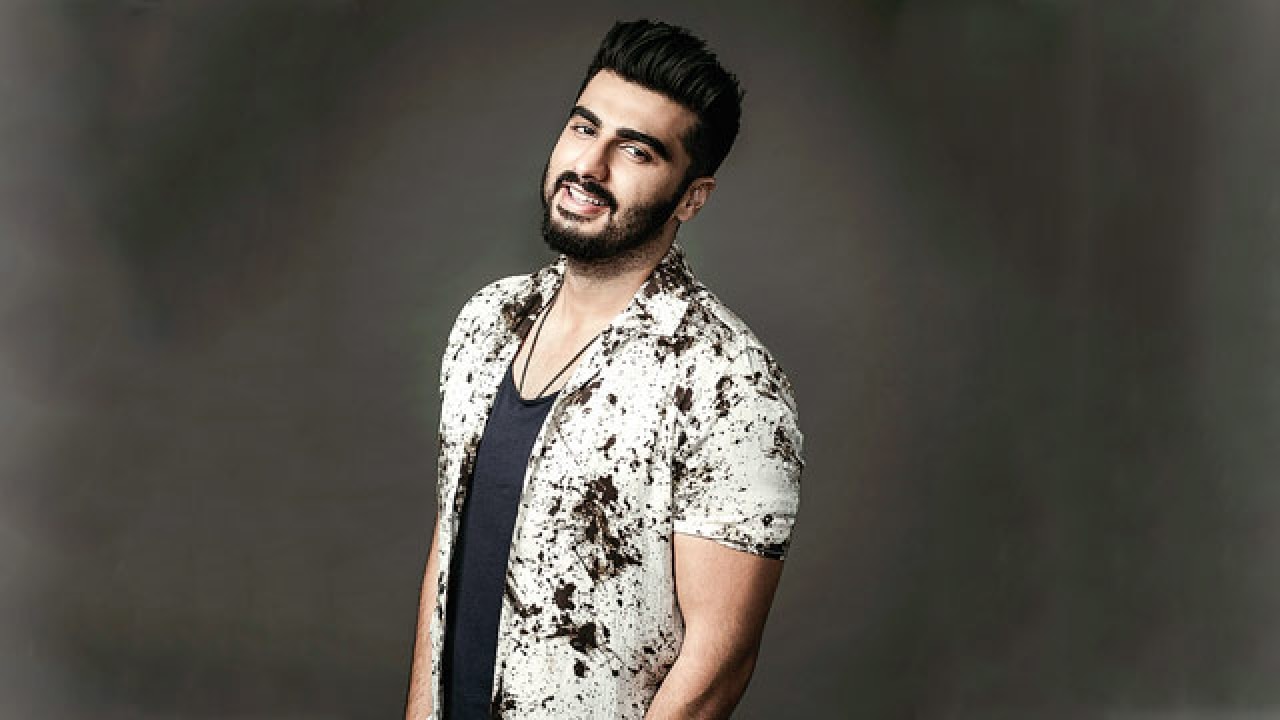
Every time I talk to Arjun Kapoor, I come away impressed by how sorted he is. He is passionate about films and understands the business of cinema and has the right instincts in every department. That can only come from being around conversations revolving around film production. He is a producer’s son and the business is in his genes, after all. One day, he will run his father’s banner, or even launch his own. Today, after six films under his belt, this actor talks like a seasoned producer. He knows exactly what is happening in the film business, how to project himself, which makers to associate with, and what films to signs. Over to Arjun as he talks about pressures of choosing the right film, and doing the right thing...
I always made my own decisions.
The thing is, I make a choice and then I go and ask them for their opinion about it. I don’t put it in a way where I ask, ‘What do you feel? Should I do the film or not?’ Because then, I will blame them for the failure of the film, which is wrong. I don’t ever want to be pointing a finger at dad or Adi and saying, ‘Arre aapne bola tha karne... aur nahi chali. Ab main yeh picture kar raha hoon, give me your feedback on it.’
Yes. At the most, I will say, ‘Dad this is the script that I have really liked. What is your opinion about it?’ So I am never posing that question: ‘Should I do it?’ And I’m never putting them in that spot, where they feel the pressure. When I signed 2 States, I called up dad and he said ‘Very good’. When I signed Finding Fanny, I called him up and said it’s a quirky film. He said, ‘You must do a film like that.’
No. In fact, dad told me, ‘It’s important for you to do this film’ because the multiplex audience was still growing. Now, the multiplex audience has become relevant. It wasn’t so, three years ago. We don’t realise how much has changed in three years. He said, ‘You must inculcate a new Mumbai-Delhi mindset.’ He, as a producer, and even Adi had said, ‘You must do it, you are doing rustic films, so this will be a new and a cool space for you’. So, I have made all my choices on my own, but I do take their opinion. My sister is the third person I share the scripts with. That’s about it.
I thought it would get easier with time, but it has actually got tougher. The younger you are, the more naive you are. You make more honest choices, that are less calculated. As time goes by, you are influenced by various factors and...
Yes, but you know there are fleeting moments where you need to take a step and say, ‘Arre yaar, I need to make an honest choice’. I cannot be thinking about project and star cast. I need to be honest enough that if I am not excited enough to say ‘Yes, I will not jump into it’ or say ‘Yaar, mujhe bhi pata hai, yeh director... he’s a new director, but I feel I am excited enough to grab the offer’. To be honest, there are fleeting moments of dishonesty that come to you because you see the shine and sparkle after four years and you get attracted to that.
Yes, now the longevity is there.
Yes. I said this in my last interview as well. It’s not about survival of the quickest, but about the one who can last. It’s not about how quickly you reach the top, it’s about sustaining. It’s a long race. Like you said, make choices that are long-term choices, not short-term.
I’m trying. It’s very difficult sometimes to do just one film at a time, and everybody says, ‘Aare teen-chaar sign karke rakhle. Kya farak padta hai? Do chalegi, do nahi chalegi.’
But that’s good, na. Also, it allows you to be open to the correct film, which can come your way at any time.
Yes, but when I did Ki & Ka, I didn’t sign anything, then suddenly Half Girlfriend came my way. Circumstances brought it to me. I was ready to be part of it because I had not committed to three other films, otherwise, I wouldn’t be able to do it. I feel it’s one of the best scripts I have got as an actor to be a part of in terms of investing. If I had signed two three other films — not that they would have been bad for me — but I would have missed out on a great possibility of playing a character that I am really excited about.
Yes, I think it’s good to be patient. There might be a time where we all end up signing four films at the same time. The industry slowed down a little bit in terms of the amount of films being made. It’s become a little more qualitative rather than quantitative, even if you see the big studios...
Correct. So now, even the big studios are greenlighting limited films. And actors, like you said, are not saying yes to everything that comes their way because it’s about doing one correct film a year rather than two bad films in a year.